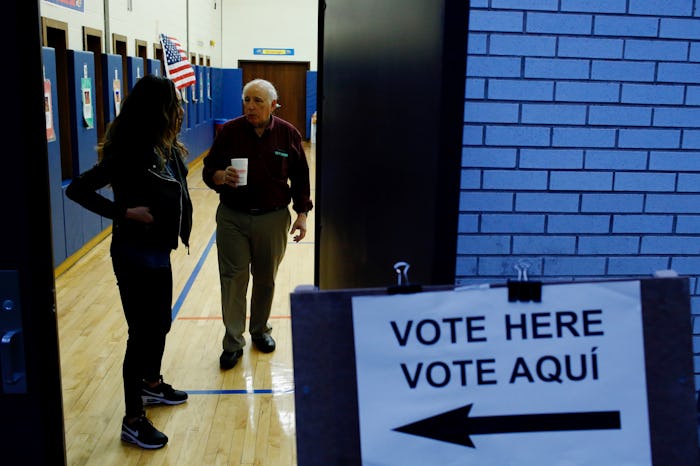News

Is New York A Winner-Take-All State? Voters May Grant A Big Win To One Candidate
The 2016 presidential primary races continue the glacial pace toward party nominations and it’s time for the candidates to turn their attention to the Empire State. On Tuesday, New York voters will have their say between the five remaining candidates for president — including three who call New York home. But, while a large chunk of delegates are at stake in the New York primaries, just how those precious votes will be awarded to the winning candidates is anything but simple. Is New York a winner-take-all state? Well, sort of, but only for one party.
In the Democratic race, the answer to the winner-take-all question is refreshingly simple: the primaries just don’t work that way. According to the New York Times delegate tracker, every Democratic race allocates delegates proportionally in some way. In some states, it’s a simple split based on the popular votes each candidate wins at the polls or in the caucuses. And in others, the delegates are divided based on both the statewide votes and the poll results from the individual Congressional districts. That’s how it works in New York and on Tuesday, according to the Times, some 291 delegates will be divided between former Secretary of State Hillary Clinton and Vermont Sen. Bernie Sanders based on that state/district model.
But, as with most aspects of the 2016 GOP presidential primary, the winner-take-all question in New York isn’t so clear cut. The Times reported that the Republicans have 95 delegates at stake in the Empire State. But as Harry Enten over at FiveThirtyEight.com reported earlier this week, New York has a complicated delegate dividing process when it comes to the GOP contenders.
The state awards 14 of its 95 delegates proportionately according to statewide poll results, and, if a candidate wins 50 percent or more of the popular vote statewide, they get all 14 delegates. The remaining 81 delegates are doled out according to wins in each congressional district. Each district awards a total of three delegates; if a candidate wins a plurality (more than his or her opponents) two delegates are earned — but if a candidate wins more than half the votes in the district, they earn all three delegates, according to Enten’s report.
To add an additional wrinkle, in order to qualify for any delegates at all — in either the statewide or the district distributions — a GOP candidate must earn at least 20 percent of votes at the polls, according to Frontloading HQ. If a candidate doesn’t meet that minimum threshold, the delegates they would have earned go to the statewide frontrunner.
According to CNN, both Clinton and billionaire GOP frontrunner Donald Trump are predicted to take the Empire State in double-digit leads over their rivals, but exactly how the delegates will land, on the GOP side at least, remains anyone’s guess. And the landscape is even more difficult to call because New York’s voter registration rules bar Independent voters from participating — a barrier that will disenfranchise some three million registered NY voters on primary day, according to The Nation. That means in the most important New York primary race in decades, young voters and undecideds won’t be counted at all, which would be a blow across the political spectrum.
The delegate distribution rules are undoubtedly complicated in New York, which will make Tuesday's primary an interesting race to watch. But on whether the New York primaries will give any of the GOP candidates a winner-take-all boost over his rivals will depend on just how much momentum the Republican candidates have been able to muster in the Empire State.